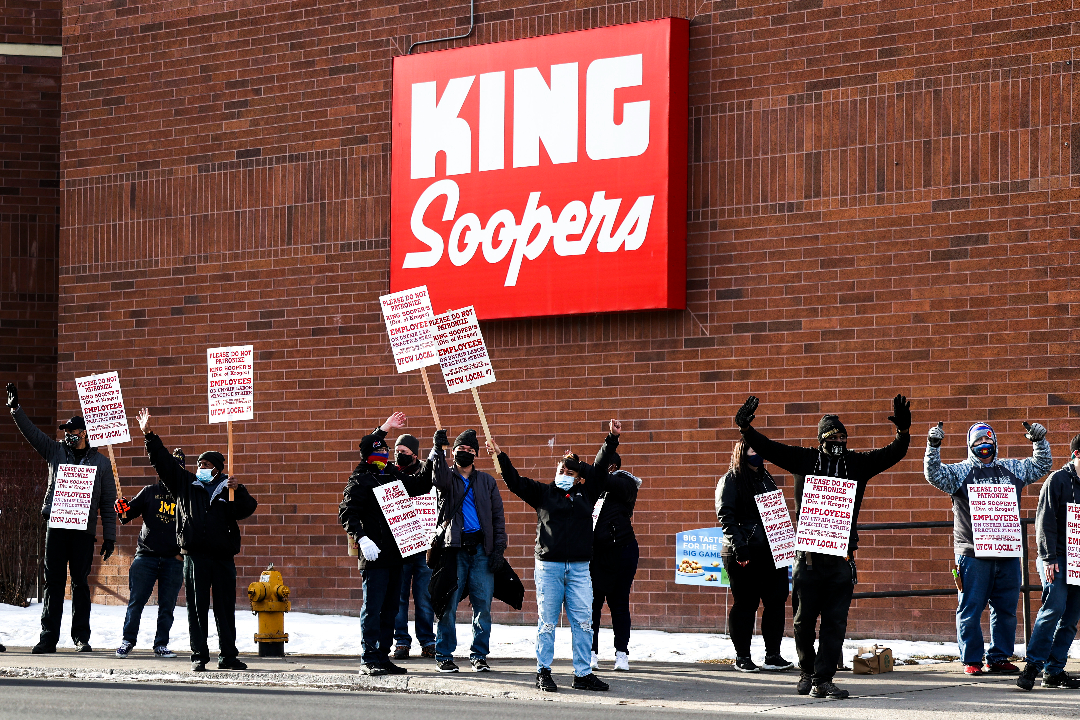In the first six months of 2025, grocery contracts covering over 130,000 union workers are set to expire. The contracts span five states, a dozen local unions, and several employers — namely the grocery giants Kroger and Albertsons.
United Food and Commercial Workers (UFCW) Local 7 just announced a two-week strike at Kroger brand King Soopers, beginning Thursday, February 6. Ten thousand Colorado grocery workers will be on strike at seventy-seven stores across the state through Super Bowl weekend and Valentine’s Day. It’s the first major grocery contract expiration in 2025 and will set the stage for the contracts bargained for the rest of the year.
Kroger’s last, best, and final offer included abysmal wage increases, with thousands of workers offered $0.25 or less in the first year of the contract. It failed to address worker concerns over understaffing, low wages, two-tier discrimination, shorter wage steps, and protections from automation.
Grocery giants Kroger and Albertsons’ $24.6 billion mega-merger was blocked in court after a coalition of UFCW and Teamster locals, including UFCW Locals 7, 324, 770, and 3000, organized a powerful “Stop the Merger” campaign. But the fight to win better wages and better working conditions is still ahead. And to take full advantage of grocery workers’ numbers and leverage, we’ll need to change how we organize.
Over the last few decades, grocery jobs have changed from good union jobs with wages and benefits comparable to those of United Auto Workers (UAW) and International Association of Machinists…
Auteur: Isaac Soto

